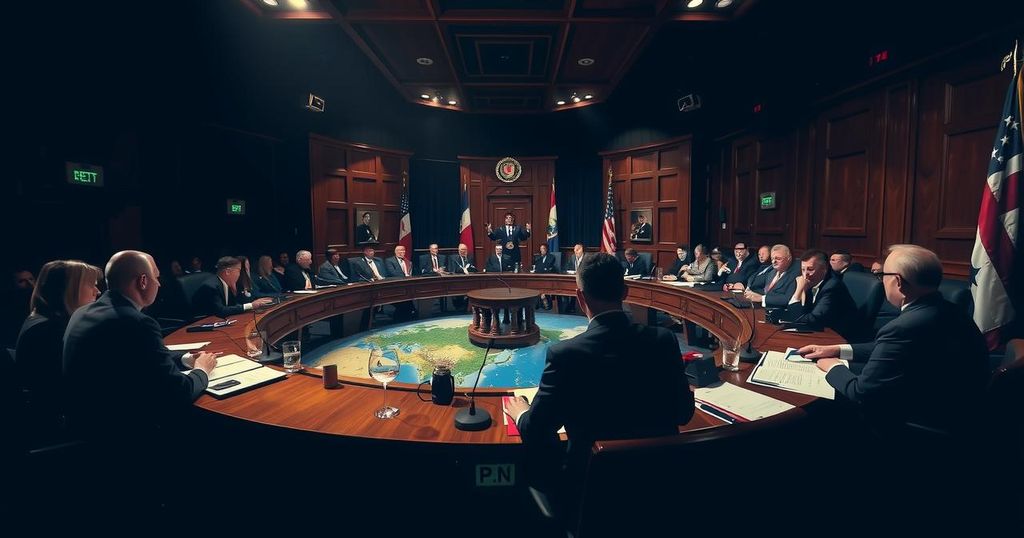The International Court of Justice has initiated hearings regarding countries’ legal responsibilities in combating climate change, with nearly 100 nations participating. Vanuatu leads the case, seeking clarification on obligations and reparations related to climate damages. The non-binding court opinion could influence future climate litigation globally as nations grapple with the impacts of climate change and the need for accountability.
The International Court of Justice (ICJ), located in The Hague, has commenced a crucial hearing concerning the legal obligations of governments regarding climate change. This significant case involves nearly 100 nations, with Vanuatu spearheading the initiative for a legal opinion. The discussions aim to establish the responsibilities of states in combating climate change and addressing damages caused by climate-related impacts. Although the court’s decision will not be legally binding, it may inform and bolster climate litigation globally.
The impetus for this legal inquiry originated five years ago from law students in Fiji, subsequently adopted by Vanuatu, which has experienced severe effects of climate change, including devastating cyclones impacting 80% of its population last year. Under legislative pressure from numerous countries, the UN General Assembly presented two critical climate questions to the ICJ, seeking clarity on nations’ international legal duties to mitigate greenhouse gas emissions and the consequences of failing to do so.
Vanuatu is poised to present evidence first in the hearings, illustrating its frontline position in the struggle against climate change. Ralph Regenvanu, Vanuatu’s special envoy, emphasized the urgency of their appeal, declaring that the advisory opinion from the ICJ represents a defining moment in establishing international legal mandates for climate action.
While the court’s findings will have no binding effect, the ruling could significantly influence future legal proceedings where smaller nations pursue compensation from industrialized countries for damages incurred due to historical greenhouse gas emissions. Moreover, the hearing takes place shortly after the COP29 climate summit, where developing nations expressed dissatisfaction with a proposed $300 billion annual climate financing commitment by 2035, deeming it inadequate. The ICJ hearings are set to continue until December 13, with a decision anticipated in 2025.
The matter being addressed by the International Court of Justice highlights the growing recognition of the legal responsibilities of nations regarding climate change. As climate impacts escalate, particularly for vulnerable states like Vanuatu, the articulation of legal obligations may provide a framework for accountability and reparations. The case represents a collective effort to seek justice and compel nations to fulfill their commitments to climate action, particularly regarding emissions reductions and support for affected populations.
In conclusion, the hearings at the ICJ are pivotal for clarifying the legal responsibilities of nations towards climate change, especially for vulnerable states. With the involvement of numerous countries, including major emitters, the outcome, while not legally binding, holds the potential to reinforce the narrative of accountability and pave the way for increased financial support for those impacted by climate change. The global community continues to watch closely as this case unfolds, representing both a legal challenge and a moral imperative for climate justice.
Original Source: www.bbc.com






